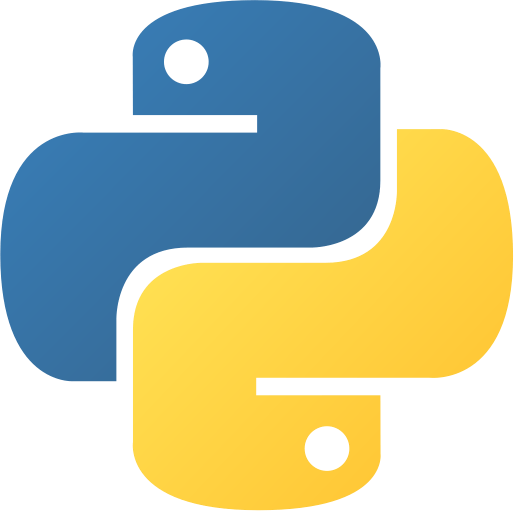The Python Library
Python Learning Resources: Unlock the World of Programming
Welcome to our specially curated page dedicated to Python learning resources! Whether you are a beginner looking to take your first steps into programming or an experienced developer aiming to enhance your Python skills, this collection of books will guide you on your journey to mastery.
Why Books?
Books are a fantastic way to learn Python. They provide a structured approach to learning, guiding you through the fundamentals of the language and helping you build a solid foundation. Books also offer a wealth of knowledge and insights from experienced developers, making them an invaluable resource for programmers of all levels.
By the help of books, you have a chance to learn from the best. You can learn from the mistakes of others and avoid making them yourself. You can also learn from the successes of others and apply their strategies to your own projects. Books are a great way to learn from the best and avoid the pitfalls of inexperience.
For those who prefer a more hands-on approach, we also recommend checking out our Python tutorials and hands-on projects. These resources are designed to reinforce your understanding of Python through practical application, allowing you to put your skills into practice and gain valuable experience.
1. “Python Crash Course” by Eric Matthes
This book is an excellent starting point for beginners. It provides a hands-on, project-based approach to learning Python. With a focus on practical coding exercises and real-world applications, “Python Crash Course” offers a comprehensive introduction to the fundamentals of Python programming.

2. “Fluent Python” by Luciano Ramalho
For those who want to deepen their understanding of Python and write more idiomatic and expressive code, “Fluent Python” is a must-read. Luciano Ramalho explores Python’s features and design patterns, offering valuable insights for intermediate and advanced developers.

3. “Automate the Boring Stuff with Python” by Al Sweigart
Discover the power of Python for automating everyday tasks. Al Sweigart’s “Automate the Boring Stuff with Python” takes a practical approach to teach Python programming through hands-on projects. Learn how to automate tasks, manipulate data, and work with web APIs in a fun and engaging manner.

4. “Head First Python” by Paul Barry
“Head First Python” is a beginner-friendly introduction to Python programming. Paul Barry’s book takes a hands-on approach to learning Python, guiding you through the fundamentals of the language and helping you build a solid foundation. With a focus on practical examples and exercises, this book is an excellent resource for those looking to get started with Python.

5. “Learn Python 3 the Hard Way” by Zed A. Shaw
“Learn Python 3 the Hard Way” is a beginner-friendly introduction to Python programming. Zed A. Shaw’s book takes a hands-on approach to learning Python, guiding you through the fundamentals of the language and helping you build a solid foundation. With a focus on practical examples and exercises, this book is an excellent resource for those looking to get started with Python.

6. “Effective Python: 90 Specific Ways to Write Better Python” by Brett Slatkin
Brett Slatkin’s “Effective Python” is a concise guide filled with best practices and techniques for writing clean, efficient, and maintainable Python code. Each item in the book provides practical advice, making it an invaluable resource for developers seeking to level up their Python skills.

7. “Dive into Python 3” by Mark Pilgrim
For a comprehensive guide to Python 3, “Dive into Python 3” by Mark Pilgrim is a fantastic resource. The book covers a wide range of topics, from basic syntax to advanced features, making it suitable for both beginners and experienced developers transitioning to Python 3.

8. “Python Cookbook” by David Beazley and Brian K. Jones
Explore a collection of recipes and practical solutions to common Python challenges in the “Python Cookbook.” This book is a valuable reference for programmers looking to solve specific problems and gain insights into Python’s versatile capabilities.

9. “Think Python” by Allen B. Downey
“Think Python” is a beginner-friendly introduction to Python programming. Allen B. Downey’s book takes a hands-on approach to learning Python, guiding you through the fundamentals of the language and helping you build a solid foundation. With a focus on practical examples and exercises, this book is an excellent resource for those looking to get started with Python.

10. “Learning Python” by Mark Lutz
“Learning Python” is a comprehensive guide to Python programming. Mark Lutz’s book covers a wide range of topics, from basic syntax to advanced features, making it suitable for both beginners and experienced developers transitioning to Python 3.

Conclusion
Whether you’re just starting your Python journey or looking to deepen your expertise, these books cover a spectrum of topics, from beginner-friendly introductions to advanced techniques. Explore the richness of Python programming through these resources and unlock the full potential of this versatile language.
Happy learning, and may your Python adventures be both enjoyable and rewarding!
Was this page helpful?
Let us know how we did


